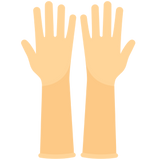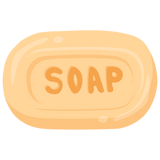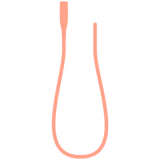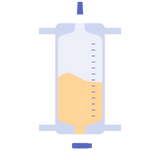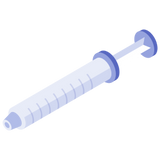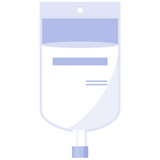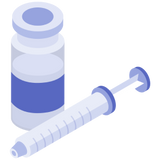
Neurodegenerative Diseases: Types, Symptoms, and Treatment
Posted by Pankaj Dhiman on Feb 7th 2024
Hey there, fellow readers! Today, let's delve into a topic that affects millions of people worldwide: neurodegenerative diseases. These conditions impact the nervous system, leading to a variety of symptoms and challenges. So, grab a cup of coffee, sit back, and let's explore what neurodegenerative diseases are all about!
Must Read: Alcoholic Liver Disease: Act Before it's Too Late
What are Neurodegenerative Diseases?
Neurodegenerative diseases are a group of disorders that primarily affect neurons, the building blocks of our nervous system. These diseases gradually cause the deterioration and death of nerve cells, leading to a decline in cognitive function, movement, and other neurological functions.
Must Read: 12 Best Selling Wound Care Products in US
Types of Neurodegenerative Diseases
There are several types of neurodegenerative diseases, each with its own set of characteristics and symptoms. Some of the most common ones include:
- Alzheimer's Disease: This is the most prevalent form of dementia, characterized by memory loss, cognitive decline, and changes in behavior.
- Parkinson's Disease: Parkinson's affects movement, causing tremors, stiffness, and difficulty with balance and coordination.
- Huntington's Disease: This inherited disorder leads to involuntary movements, cognitive decline, and psychiatric symptoms.
- Amyotrophic Lateral Sclerosis (ALS): Also known as Lou Gehrig's disease, ALS affects nerve cells controlling voluntary muscles, leading to muscle weakness and paralysis.
- Multiple Sclerosis (MS): MS damages the protective covering of nerve fibers in the brain and spinal cord, causing a range of symptoms such as numbness, weakness, and impaired coordination.
Must Read: Thyroid Disorders in Women: A Guide to Reproductive & Overall Well-being
Neurodegenerative Diseases Symptoms
The symptoms of neurodegenerative diseases vary depending on the type and stage of the condition. However, some common symptoms include:
- Memory loss
- Cognitive decline
- Muscle weakness
- Tremors or involuntary movements
- Difficulty with speech and swallowing
- Changes in mood or behavior
Neurodegenerative Diseases Causes
The exact causes of neurodegenerative diseases are not fully understood, but they often involve a combination of genetic, environmental, and lifestyle factors. For example:
- Genetics: Some neurodegenerative diseases, like Huntington's disease, are caused by inherited genetic mutations.
- Environmental Factors: Exposure to certain toxins or chemicals may increase the risk of developing neurodegenerative diseases.
- Age: Many neurodegenerative diseases become more prevalent with age, suggesting that aging processes may contribute to their development.
Must Read: Bone Cancer: What You Need to Know
Neurodegenerative Diseases Diagnosis
Diagnosing neurodegenerative diseases can be challenging, as there is often overlap in symptoms between different conditions. However, doctors may use a combination of medical history, physical examination, neurological tests, and imaging studies (like MRI or CT scans) to make a diagnosis.
Neurodegenerative Diseases Treatment
While there is currently no cure for most neurodegenerative diseases, treatments are available to help manage symptoms and improve quality of life. These may include:
- Medications: Drugs such as acetylcholinesterase inhibitors may help improve cognitive function in Alzheimer's disease, while levodopa can alleviate symptoms of Parkinson's disease.
- Physical Therapy: Physical therapy and exercise can help maintain mobility and muscle strength in conditions like ALS and MS.
- Speech Therapy: Speech therapy may be beneficial for individuals experiencing difficulties with speech and swallowing.
- Supportive Care: Providing support for daily activities, counseling, and assistance with emotional and practical challenges can be invaluable for patients and their families.
Must Read: Neuromuscular Disorders: Types, Symptoms, Diagnosis & Treatment Options
Neurodegenerative Diseases Complications
Neurodegenerative diseases can lead to various complications, including:
- Loss of Independence: As symptoms progress, individuals may require increasing assistance with daily activities, impacting their independence.
- Cognitive Decline: Conditions like Alzheimer's disease can result in severe cognitive impairment, affecting memory, reasoning, and decision-making abilities.
- Mood Disorders: Depression and anxiety are common in neurodegenerative diseases, often stemming from the challenges of living with a chronic, progressive condition.
- Caregiver Burden: Family members and caregivers may experience significant stress and burden as they provide support and assistance to their loved ones.
Conclusion
In conclusion, neurodegenerative diseases are complex conditions that pose significant challenges for patients, caregivers, and healthcare providers. While much progress has been made in understanding these diseases and developing treatments to manage symptoms, there is still much work to be done in finding cures and improving outcomes. By raising awareness, supporting research, and providing compassionate care, we can work together to make a difference in the lives of those affected by neurodegenerative diseases. Stay informed, stay connected, and let's continue the journey towards a brighter future for all!
So, that's a wrap on our discussion about neurodegenerative diseases. Remember, knowledge is power, and by understanding these conditions better, we can all play a part in supporting those affected and driving progress in research and treatment. Until next time, take care, and keep learning!















